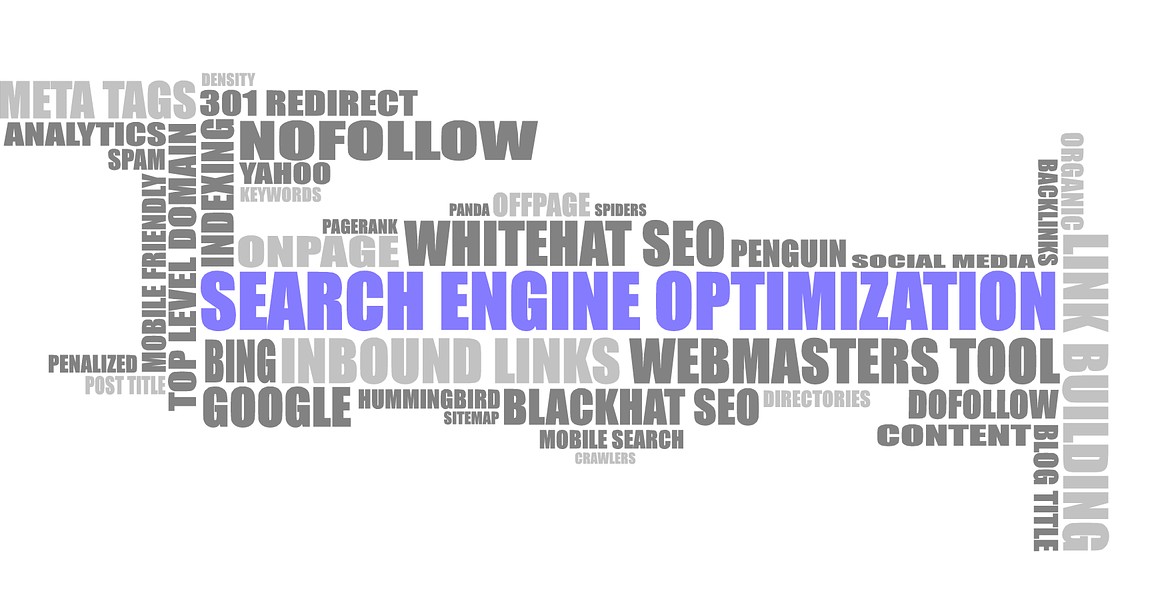Introduction: How to Optimize Your Website for Search Engines
As a professional and experienced content creator, I know how important it is to optimize your website for search engines. SEO, or search engine optimization, is the process of improving your website’s visibility and ranking on search engine results pages (SERPs). With over 3.5 billion searches conducted on Google every day, it’s crucial to ensure that your website is optimized for search engines to attract more traffic, leads, and sales.
Why is SEO important?
SEO is important because it helps you reach your target audience effectively. By optimizing your website for search engines, you can increase your website’s visibility and ranking on SERPs, which can drive more organic traffic to your website. This means that people who are actively searching for your products or services can easily find your website and engage with your brand.
SEO is also important because it helps you stay competitive. With millions of websites available online, it’s essential to ensure that your website stands out from the crowd. By optimizing your website for search engines, you can improve your website’s ranking and attract more visitors, which can help you stay ahead of your competitors.
Best Practices for SEO
There are several best practices for SEO that you can follow to optimize your website for search engines. These include:
- Conducting keyword research
- Creating high-quality content
- Optimizing your website’s meta tags and descriptions
- Building high-quality backlinks
- Optimizing your website’s loading speed
By following these best practices, you can improve your website’s visibility and ranking on SERPs, attract more traffic, and generate more leads and sales for your business.
Understanding SEO
SEO stands for Search Engine Optimization. It is the practice of optimizing your website to improve its visibility and ranking on search engine results pages (SERPs).
Why is SEO important?
SEO is important because it helps businesses and websites to reach their target audience and potential customers. By optimizing your website for search engines, you can improve your website’s visibility, increase traffic, and ultimately boost your revenue.
How search engines work
Search engines use complex algorithms and ranking factors to determine the relevance and authority of a website. They crawl and index websites to understand their content and structure, and then rank them based on various factors such as keywords, backlinks, and user experience.
Search engines also use different types of searches, such as text, image, and video searches, to provide users with the most relevant results. By understanding how search engines work and what they look for in a website, you can optimize your website to improve its visibility and ranking on SERPs.
| On-page factors | Off-page factors |
|---|---|
|
|
By optimizing both on-page and off-page factors, you can improve your website’s visibility and ranking on search engines, and ultimately drive more traffic and revenue to your business.

Keyword Research
Keyword research is a crucial aspect of any successful SEO campaign. It involves identifying the most relevant and valuable keywords for your website, which will help you to rank higher in search engine results pages (SERPs) and attract more targeted traffic to your site.
Importance of Keyword Research
Keyword research helps you to understand the language and search terms that your target audience is using when searching for products or services similar to yours. By targeting the right keywords, you can improve your chances of ranking higher on search engines, increase your visibility, and attract more potential customers to your site.
Tools for Keyword Research
There are many tools available to help you with keyword research, including Google Keyword Planner, SEMrush, Ahrefs, and Moz Keyword Explorer. These tools allow you to identify the most relevant and valuable keywords for your website, as well as analyze your competitors’ keywords and search terms.
Finding the Right Keywords
To find the right keywords, start by brainstorming a list of relevant words and phrases related to your business or industry. Use keyword research tools to identify search volume and competition for each keyword. Look for long-tail keywords, which are more specific and have less competition, but can still attract targeted traffic to your site.
| Benefits of Keyword Research |
|---|
| Improved search engine rankings |
| Increased visibility and traffic |
| Better understanding of your target audience |
| More effective content creation and optimization |
In conclusion, keyword research is essential for any successful SEO campaign. By identifying the most relevant and valuable keywords for your website, you can improve your search engine rankings, attract more targeted traffic to your site, and better understand your target audience.

On-Page Optimization for Search Engines
On-page optimization is crucial for improving your website’s ranking on search engines. Here are some tips and best practices:
Title Tags and Meta Descriptions
Include relevant keywords in your title tag and meta description. Keep the title tag under 60 characters and the meta description under 155 characters. This will help search engines understand what your page is about and improve click-through rates.
Header Tags
Use header tags (H1, H2, H3, etc.) to structure your content. This helps search engines understand the hierarchy of your content and improves readability for users.
URL Structure
Create a clear and concise URL structure that includes relevant keywords. Use hyphens to separate words and keep URLs under 255 characters. This helps search engines and users understand what your page is about.
Keyword Density and Placement
Avoid keyword stuffing and instead use relevant keywords naturally throughout your content. Aim for a keyword density of 1-2% and include keywords in the first paragraph, headings, and image alt tags.
Image Optimization
Use descriptive file names and include relevant keywords in image alt tags. Compress images to improve page load speed, which can also improve your website’s ranking on search engines.
| On-Page Optimization Checklist: |
|---|
| Include relevant keywords in title tags and meta descriptions |
| Use header tags to structure content |
| Create a clear and concise URL structure |
| Avoid keyword stuffing and use keywords naturally |
| Optimize images with descriptive file names and alt tags |

Off-Page Optimization
Off-page optimization refers to the activities that take place outside of your website to improve its visibility and ranking on search engine results pages (SERPs).
Link Building
Link building is an essential aspect of off-page optimization. It involves getting other websites to link back to your site. The more backlinks you have from high-quality sites, the higher your site’s authority will be, and the better it will rank on search engines. However, it’s essential to note that not all backlinks are created equal. Google and other search engines value backlinks from reputable and relevant sites more than those from spammy or irrelevant ones.
- Guest posting on relevant websites and including a link back to your site
- Participating in online forums and including a link to your site in your signature
- Creating shareable content that other websites will naturally link to
- Partnering with other websites in your industry to exchange links
Social Media Marketing
Social media marketing is another off-page optimization technique that can help improve your website’s visibility and drive more traffic. By creating and sharing engaging content on social media platforms like Facebook, Twitter, and LinkedIn, you can attract more followers and encourage them to visit your site. Social media signals, such as likes, shares, and comments, can also help boost your site’s authority and improve its ranking on SERPs.
- Create and share engaging content on social media platforms
- Participate in relevant social media groups and communities
- Use social media advertising to target your audience and drive traffic to your site
Guest Blogging
Guest blogging involves writing and publishing content on other websites in your industry. By doing so, you can reach a broader audience and attract more traffic to your site. Additionally, including a link back to your site in your guest post can help improve your site’s authority and ranking on SERPs.
- Identify relevant websites in your industry that accept guest posts
- Create high-quality, engaging content that will appeal to their audience
- Include a link back to your site in your guest post

Technical SEO
Technical SEO refers to the optimization of your website’s technical elements that affect search engine rankings. These elements include site speed, mobile optimization, and site architecture.
Site Speed
Site speed is a crucial factor in SEO. A slow-loading website can negatively impact user experience and result in a higher bounce rate. To improve site speed, consider optimizing images and videos, minifying code, and using a content delivery network (CDN). You can use tools like Google PageSpeed Insights to analyze your website’s speed and identify areas for improvement.
Mobile Optimization
With more than half of all web traffic coming from mobile devices, mobile optimization is essential for SEO. A mobile-friendly website ensures that your content is accessible and easy to navigate on mobile devices. It also improves user experience and can lead to higher search engine rankings. To optimize for mobile, use responsive design, optimize images and videos for mobile, and ensure that your website is easy to use on a small screen.
Site Architecture
Site architecture refers to the way your website is structured and organized. A well-organized website makes it easier for search engine crawlers to index your content, which can lead to higher search engine rankings. To optimize your site architecture, consider using a clear and logical URL structure, organizing your content into categories and subcategories, and using internal linking to connect related content.
| Element | Tips |
|---|---|
| Site Speed | Optimize images and videos, minify code, use a CDN |
| Mobile Optimization | Use responsive design, optimize for mobile, ensure easy navigation on small screens |
| Site Architecture | Use clear URL structure, organize content into categories and subcategories, use internal linking |

Measuring SEO Success
Measuring the success of your SEO efforts is crucial to know whether your strategies are working or not. Here are some tools that can help you track your progress:
Google Analytics
One of the most popular tools for tracking website traffic is Google Analytics. It provides a wealth of information about your website’s visitors, including their demographics, behavior, and acquisition channels. With this tool, you can track the number of visitors to your site, how long they stay, and which pages they visit the most. You can also set up goals to track specific actions, such as form submissions or product purchases.
Rank Tracking Tools
Rank tracking tools allow you to monitor your website’s search engine rankings for specific keywords. By tracking your rankings, you can see whether your SEO efforts are improving or declining. Some popular rank tracking tools include Ahrefs, SEMrush, and Moz. These tools also provide insights into your competitors’ rankings, which can help you identify new opportunities for optimization.
| Tool | Features | Pricing |
|---|---|---|
| Ahrefs | Keyword research, backlink analysis, site audit | Starts at $99/month |
| SEMrush | Keyword research, site audit, social media tracking | Starts at $119.95/month |
| Moz | Keyword research, site audit, link building tools | Starts at $99/month |
By using these tools, you can determine whether your SEO efforts are paying off and make data-driven decisions to improve your website’s search engine performance.
Conclusion
Optimizing your website for search engines is crucial if you want to increase your online visibility and attract more organic traffic. By following the SEO tips and best practices discussed in this article, you can improve your website’s ranking on search engine results pages and drive more targeted traffic to your site.
Key Takeaways
- Keyword research is essential to identify the most relevant and high-traffic keywords for your website.
- On-page optimization involves optimizing your website’s content, structure, and HTML tags.
- Off-page optimization includes building high-quality backlinks and social media engagement.
- Regularly updating your website with fresh and relevant content can help improve your search engine ranking.
- Monitoring and analyzing your website’s performance using analytics tools can help you identify areas for improvement.
Keep Learning and Improving
SEO is an ever-evolving field, and it’s essential to keep up with the latest trends and best practices to stay ahead of the competition. By regularly learning and improving your SEO strategies, you can achieve long-term success and sustainable growth for your website and business.
| Resource | Description |
|---|---|
| Moz Beginner’s Guide to SEO | Comprehensive guide to SEO for beginners |
| Search Engine Land | Leading news and information source for SEO and SEM professionals |
| SEMrush | All-in-one SEO and SEM tool for keyword research, site audit, and more |
By implementing the SEO tips and best practices outlined in this article and utilizing the resources available, you can optimize your website for search engines and achieve your online goals.
